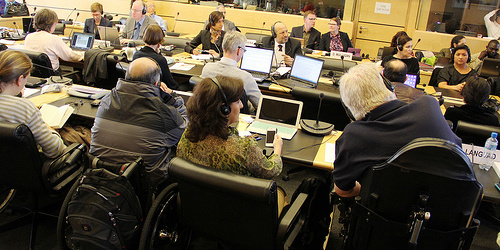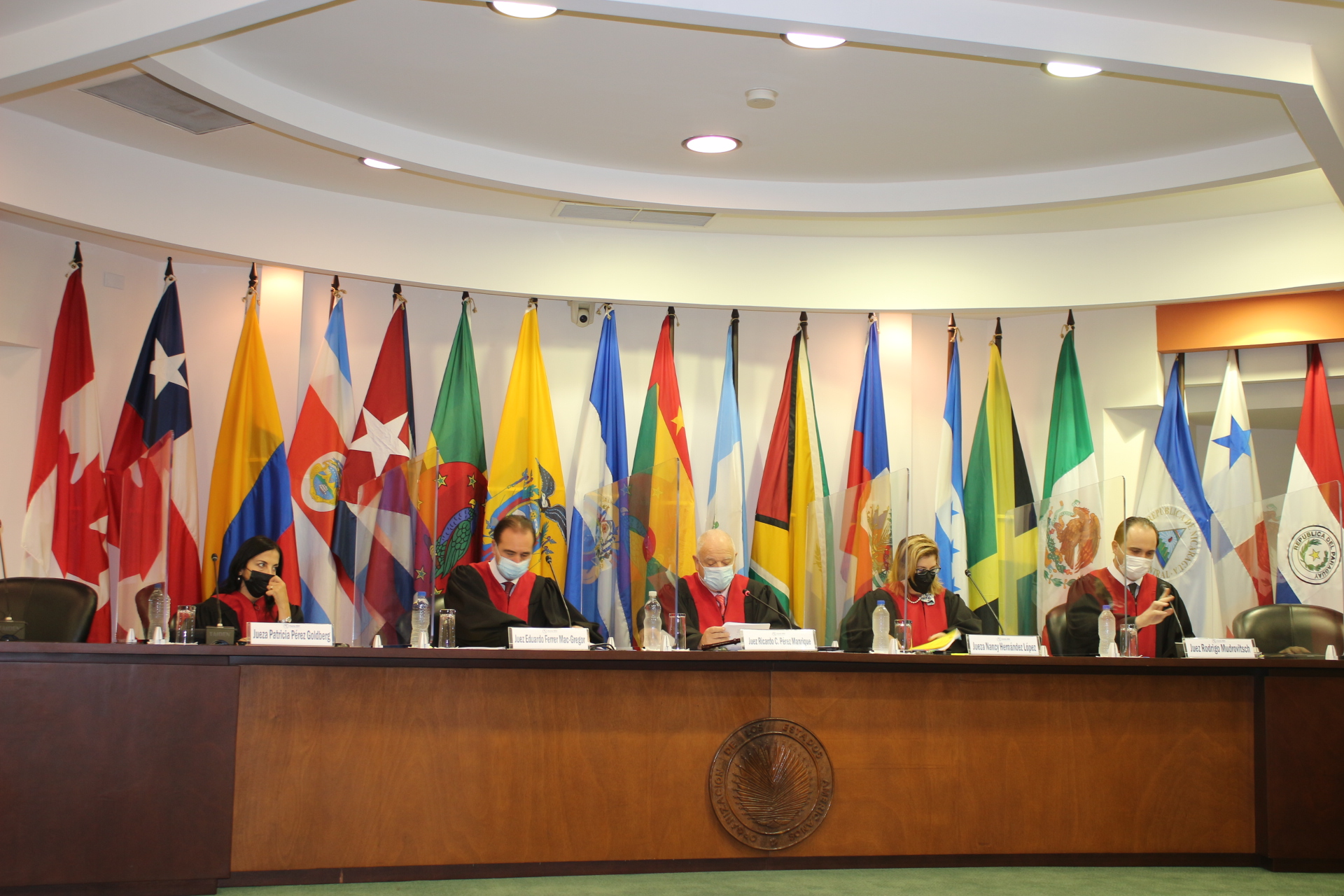Bujdosó, Márkus, Márton, Mészáros, Polk, Szabó v. Hungary (4/2011)
Summary
In September 2013, the Committee on the Rights of Persons with Disabilities was asked to consider whether Hungary had violated its obligations under the Convention on the Rights of Persons with Disabilities in restricting the right of disabled persons to vote in local and national elections.
The communication was submitted by six Hungarian nationals under the Optional Protocol to the Convention.
Background
On 11 April and 3 October 2010 respectively, parliamentary and municipal elections were held in Hungary. Due to restrictions placed on their legal capacity by the Hungarian courts, the authors of the communication were unable to vote in these elections. The courts had deemed the authors to suffer from “intellectual disability”, and placed them under partial or general guardianship. As an automatic consequence of guardianship measures being ordered, the authors’ names were erased from the electoral register in accordance with the then-applicable article 70(5) of the Hungarian Constitution. Article 70(5) provided that, among other things, persons placed under total or partial guardianship did not have a right to vote.
On 14 September 2011, the authors filed this communication with the Committee under the Optional Protocol to the Convention. At the time of submitting the communication, the authors remained disenfranchised and unable to participate in elections. The authors claimed that Hungary had violated article 29 of the Convention, both read alone and in conjunction with article 12, by automatically and indiscriminately disenfranchising them regardless of the nature of their disability or the scope of the court-ordered incapacitation measure. The authors asked the Committee to recommend that Hungary amend its legislation to rectify its breach of the Convention, and award the authors equitable compensation for any non-pecuniary damages incurred as a result of their disenfranchisement.
On 1 January 2012, article XXIII(6) of the Fundamental Law and article 26(2) of the Transitional Provisions to the Fundamental Law came into force, repealing article 70(5) of the Constitution. These new provisions provide for an individualised assessment of a person’s right to vote based on their legal capacity. However, the authors submitted to the Committee that these measures continue to violate Hungary’s obligations under the Convention as the Hungarian courts continue to consider disenfranchisement exclusively in guardianship proceedings. As all persons subject to guardianship orders are persons with disabilities, the authors submit that such procedures are discriminatory.
The Committee’s decision
With regard to the admissibility of the complaint, the Committee observed that the authors had sufficiently substantiated their claims under articles 12 and 29 of the Convention and that the same matter had not been examined by the Committee or under another procedure of international investigation or settlement. As Hungary had not contended that the authors had not exhausted domestic remedies, the Committee declared the authors’ claims to be admissible under the Optional Protocol.
On the merits, the Committee recalled that article 29 of the Convention required State parties to ensure that persons with disabilities can effectively and fully participate in political and public life on an equal basis with others, including by guaranteeing their right to vote. The Committee also noted that no form of reasonable restriction or exception is referred to by article 29. The Committee therefore considered that an exclusion of the right to vote on the basis of a perceived, or actual intellectual disability, constituted discrimination on the basis of disability within the meaning of article 2 of the Convention. Accordingly, the Committee concluded that both article XXIII(6) of the Fundamental Law and article 26(2) of the Transitional Provisions to the Fundamental Law were in breach of article 29 of the Convention.
The Committee further recalled that under article 12(2) of the Convention State parties were obliged to recognise and uphold the legal capacity of persons with disabilities “on an equal basis with others in all aspects of their lives”. Under article 12(3) of the Convention, State parties also had a positive duty to take the necessary measures to guarantee to persons with disabilities the actual exercise of their legal capacity.
In light of the above, the Committee concluded that Hungary had failed to comply with its obligations under article 29, both read alone or in conjunction with article 12 of the Convention. The Committee therefore found that Hungary was under an obligation to remedy the deletion of the authors’ names from the electoral registers, including by providing them with adequate compensation for any non-pecuniary damages incurred as a result of being deprived of their right to vote, and for the legal costs incurred in filing this communication.
The Committee also considered that Hungary was under an obligation to take measures to prevent similar violations in the future, including by:
(a) considering repealing article XXIII(6) of the Fundamental Law, and article 26(2) of the Transitional Provisions to the Fundamental Law;
(b) enacting laws that recognise without any “capacity assessment” the right to vote for all persons with disabilities, including those with more need of support, and providing for adequate assistance and reasonable accommodation in order for them to be able to exercise their political rights; and
(c) guaranteeing the right to vote to persons with disabilities on an equal basis with others, as required by article 29 of the Convention, by ensuring that appropriate voting procedures, facilities and materials are accessible, and where necessary allowing assistance in voting by a person of their choice.
Hungary must now submit its written response within six months of the Committee’s decision, including information on the action taken in light of the Committee’s recommendations, and ensure that the Committee’s decision is published widely.
Sam Hunter Jones is an international lawyer, based in Paris.




